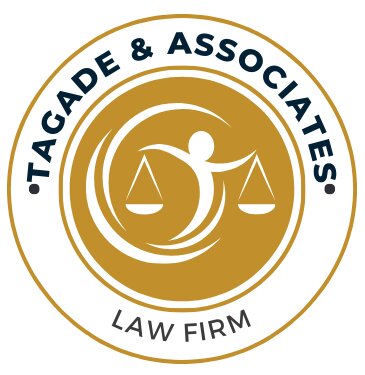Best Faith-Based Law Lawyers in Nagpur
Share your needs with us, get contacted by law firms.
Free. Takes 2 min.
List of the best lawyers in Nagpur, India
About Faith-Based Law in Nagpur, India
Faith-Based Law in Nagpur, India, involves the legal systems and practices that align with religious beliefs and customs. These laws are often intertwined with civil and personal law matters, addressing subjects like marriage, inheritance, divorce, and succession, according to the religious customs of the pertinent communities. Nagpur, as a culturally diverse city in Maharashtra, observes faith-based legal provisions across multiple religions such as Hinduism, Islam, Christianity, and others, each having its specific laws and regulations that contribute to the rich legal tapestry of the city.
Why You May Need a Lawyer
Individuals may seek legal assistance in Faith-Based Law for several reasons, including disputes over religious customs in personal matters, interpretation of religious directives in civil matters, or ensuring that legal actions like marriage, adoption, or succession align both with civil laws and religious dictates. Legal advice is often critical when navigating the complexities of faith-based personal laws, as it ensures compliance and adherence to both local and religious statutes.
Local Laws Overview
In Nagpur, faith-based legal practices are influenced by specific personal laws relevant to various religious communities, such as Hindu law, Muslim law, and Christian law. These laws govern personal matters including marriage, divorce, child custody, and inheritance. The legal framework within which these laws operate in Nagpur ensures that religious mandates are respected while maintaining coherence with national legal standards, including the Indian Constitution's provisions for equality and non-discrimination.
Frequently Asked Questions
What is Faith-Based Law?
Faith-Based Law refers to legal principles rooted in religious beliefs, which guide personal and civil matters for individuals of specific faiths.
When would Faith-Based Law apply to me?
Faith-Based Law may apply in personal situations such as marriage, divorce, or inheritance, when these matters are adjudicated according to your religious beliefs and practices.
What are the key personal laws in Nagpur?
The primary personal laws include the Hindu Marriage Act, Muslim Personal Law (Shariat) Application Act, and Christian Marriage Act, among others applicable to different communities in Nagpur.
Can Faith-Based Law override civil law?
While Faith-Based Laws govern personal matters, they must operate within the limits of civil law, especially concerning constitutional guarantees such as equality and freedom of religion.
How do courts in Nagpur deal with Faith-Based Law?
Courts in Nagpur consider Faith-Based Laws along with statutory requirements, ensuring their decisions are in harmony with national and state laws.
Is it compulsory to follow Faith-Based Law?
Following Faith-Based Law is generally compulsory for individuals of faith in personal matters, although legal recourse is available if conflicts arise between faith-based and civil rights aspects.
Can I choose to settle personal matters in civil court instead?
Individuals can seek civil court adjudication for personal matters, provided it does not conflict with core religious tenets or agreed-upon religious arbitrations.
What are the implications of Faith-Based Law in marriage and divorce?
Faith-Based Law dictates specific processes and requirements for marriage and divorce, such as ceremonial rituals or legal documentation prescribed by faith. Failure to adhere can result in the invalidation of such contracts legally.
Are there alternative dispute resolution methods under Faith-Based Law?
Yes, many Faith-Based Laws encourage arbitration, mediation, or other non-juridical settlements before approaching civil courts.
How does inheritance work under Faith-Based Law?
Inheritance rules are delineated by respective Faith-Based Laws, which may require adherence to specific family hierarchies or distribution mandates as prescribed in religious texts.
Additional Resources
If you need guidance, resources such as the State Legal Services Authority, religious councils, or legal aid societies in Nagpur can be invaluable. Institutions like the Family Court, religious tribunals, or cultural boards may also offer pertinent advice. Consulting with community elders or religious leaders can provide initial insights before seeking formal legal counsel.
Next Steps
If you require legal assistance in Faith-Based Law, your first step should be to gather any relevant documents and information related to your case. Next, consult with an experienced lawyer specializing in Faith-Based Law in Nagpur to explore your options. It's recommended to seek legal counsel familiar with both local nuances and broader statutory laws to ensure comprehensive advice. Preparing for meetings with your lawyer by collecting evidence, listing questions, and clarifying your objectives will facilitate a more productive legal consultation.
Lawzana helps you find the best lawyers and law firms in Nagpur through a curated and pre-screened list of qualified legal professionals. Our platform offers rankings and detailed profiles of attorneys and law firms, allowing you to compare based on practice areas, including Faith-Based Law, experience, and client feedback.
Each profile includes a description of the firm's areas of practice, client reviews, team members and partners, year of establishment, spoken languages, office locations, contact information, social media presence, and any published articles or resources. Most firms on our platform speak English and are experienced in both local and international legal matters.
Get a quote from top-rated law firms in Nagpur, India — quickly, securely, and without unnecessary hassle.
Disclaimer:
The information provided on this page is for general informational purposes only and does not constitute legal advice. While we strive to ensure the accuracy and relevance of the content, legal information may change over time, and interpretations of the law can vary. You should always consult with a qualified legal professional for advice specific to your situation.
We disclaim all liability for actions taken or not taken based on the content of this page. If you believe any information is incorrect or outdated, please contact us, and we will review and update it where appropriate.








